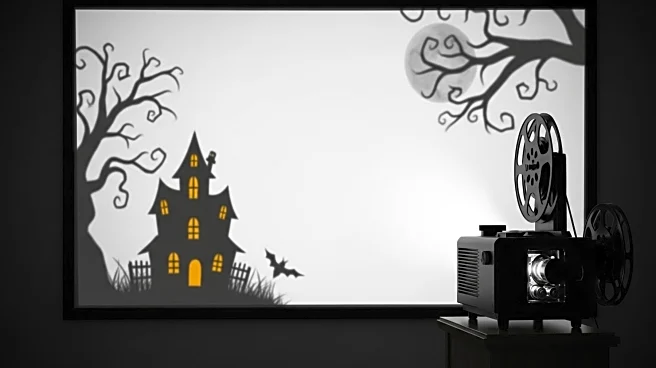What is the story about?
What's Happening?
Meta horror films are gaining popularity by offering self-aware takes on traditional horror tropes. These films, such as 'Scream' and 'The Cabin in the Woods,' use humor and self-referential elements to engage audiences familiar with the genre's conventions. By acknowledging and subverting these tropes, meta horror films provide a fresh perspective on horror storytelling. Directors like Wes Craven and Joss Whedon have been instrumental in popularizing this approach, creating films that both celebrate and critique the horror genre. This trend reflects a broader movement in cinema towards more innovative and reflective storytelling techniques.
Why It's Important?
The rise of meta horror films signifies a shift in audience expectations and preferences. As viewers become more media-savvy, they seek content that challenges traditional narratives and offers new insights into familiar genres. Meta horror films cater to this demand by blending horror with comedy and self-awareness, creating a unique viewing experience. This trend also highlights the evolving nature of the horror genre, which continues to adapt and reinvent itself to remain relevant. For filmmakers, this presents an opportunity to explore new creative avenues and engage audiences in more meaningful ways.
Beyond the Headlines
Meta horror films often explore deeper themes, such as the relationship between media and its audience, and the societal fears reflected in horror narratives. By deconstructing genre conventions, these films invite viewers to question the nature of fear and the role of horror in culture. This approach can lead to a more nuanced understanding of the genre and its impact on society. Additionally, meta horror films can serve as a commentary on the film industry itself, critiquing the commercialization and formulaic nature of mainstream cinema.

















